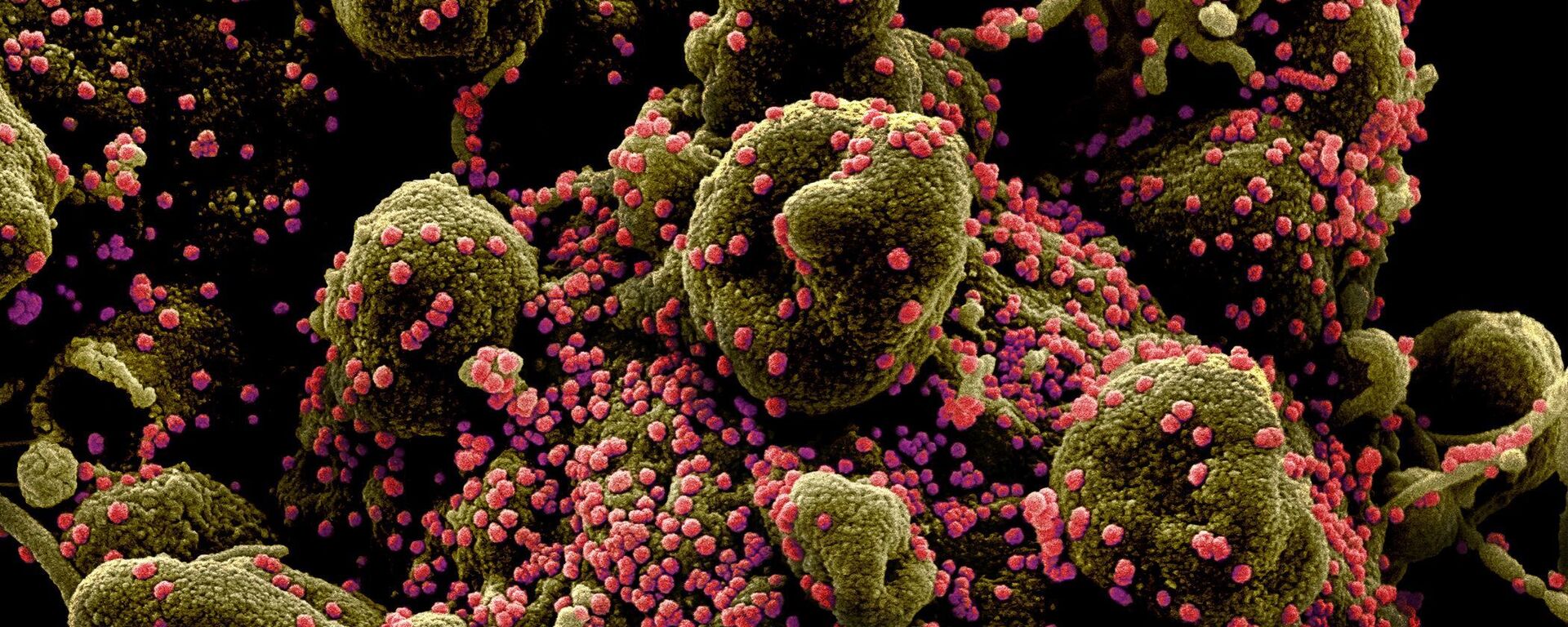https://sputnikglobe.com/20230109/russian-scientist-explains-whether-permafrost-zombie-viruses-pose-threat-to-humans-1106167084.html
Russian Scientist Explains Whether Permafrost 'Zombie Viruses' Pose Threat to Humans
Russian Scientist Explains Whether Permafrost 'Zombie Viruses' Pose Threat to Humans
Sputnik International
Researchers believe that further study is needed to dispel concerns that the viruses could become sort of a ticking time bomb once they reemerge from their ice-shuttered dwelling
2023-01-09T14:51+0000
2023-01-09T14:51+0000
2023-01-09T14:51+0000
science & tech
russia
siberia
scientists
study
threat
viruses
https://cdn1.img.sputnikglobe.com/img/07e5/05/14/1082944076_0:51:960:591_1920x0_80_0_0_8ee75d08fe32304a80d390dae7b63936.jpg
A prominent Russian virologist has stated that so-called zombie viruses, which were recently unearthed from permafrost, are “absolutely harmless” to a human organism.He also referred to plenty of modern-day pathogens which pose a threat to people and which are yet to be explored by researchers.He spoke several weeks after an international team of scientists led by microbiologist Jean-Marie Alempic from the French National Centre for Scientific Research discovered and reanimated an array of never-before-seen viruses from the Siberian permafrost.A 48,500-year-old amoeba virus is one of 13 outlined by the scientists in their study, with nine of them thought to be tens of thousands of years old.The researchers argued that the viruses still had the potential to be infectious pathogens that are capable of posing a significant threat to people.“It is therefore legitimate to ponder the risk of ancient viral particles remaining infectious and getting back into circulation by the thawing of ancient permafrost layers,” the scientists pointed out.
https://sputnikglobe.com/20230103/scientists-discover-first-ever-organism-that-only-eats-viruses-1106002155.html
russia
siberia
Sputnik International
feedback@sputniknews.com
+74956456601
MIA „Rossiya Segodnya“
2023
Oleg Burunov
https://cdn1.img.sputnikglobe.com/img/07e4/09/0b/1080424846_0:0:2048:2048_100x100_80_0_0_3d7b461f8a98586fa3fe739930816aea.jpg
Oleg Burunov
https://cdn1.img.sputnikglobe.com/img/07e4/09/0b/1080424846_0:0:2048:2048_100x100_80_0_0_3d7b461f8a98586fa3fe739930816aea.jpg
News
en_EN
Sputnik International
feedback@sputniknews.com
+74956456601
MIA „Rossiya Segodnya“
Sputnik International
feedback@sputniknews.com
+74956456601
MIA „Rossiya Segodnya“
Oleg Burunov
https://cdn1.img.sputnikglobe.com/img/07e4/09/0b/1080424846_0:0:2048:2048_100x100_80_0_0_3d7b461f8a98586fa3fe739930816aea.jpg
prominent russian virologist sergey netesov, zombie viruses, which were recently unearthed from siberian permafrost, zombie viruses are “absolutely harmless” for a human organism
prominent russian virologist sergey netesov, zombie viruses, which were recently unearthed from siberian permafrost, zombie viruses are “absolutely harmless” for a human organism
Russian Scientist Explains Whether Permafrost 'Zombie Viruses' Pose Threat to Humans
Researchers believe that further study is needed to dispel concerns that the viruses could become a ticking time bomb once they reemerge from their ice-shuttered dwelling.
A prominent Russian virologist has stated that
so-called zombie viruses, which were recently unearthed from
permafrost, are “absolutely harmless” to a human organism.
“Perhaps someone wanted to create a pre-New Year sensation, but actually, finding similar viruses in permafrost is not uncommon for scientists. These viruses, which were earlier discovered in carcasses of mammoths, affect amoebas rather than humans,” Sergey Netesov told a Russian media outlet.
He also referred to plenty of modern-day pathogens which pose a threat to people and which are yet to be explored by researchers.
“I would not delve into antiquity and permafrost, preferring to focus on сurrent human diseases,” the Russian virologist stressed, pointing to the COVID-19 pandemic.
He spoke several weeks after an international team of scientists led by microbiologist Jean-Marie Alempic from the French National Centre for Scientific Research discovered and reanimated an array of
never-before-seen viruses from the Siberian permafrost.

3 January 2023, 07:08 GMT
A 48,500-year-old amoeba virus is one of 13 outlined by the scientists in their study, with nine of them thought to be tens of thousands of years old.
The researchers argued that the viruses still had the potential to be infectious pathogens that are capable of posing a significant threat to people.
They warned that “the situation would be much more disastrous in the case of plant, animal, or human diseases caused by the revival of an ancient unknown virus.”
“It is therefore legitimate to ponder the risk of ancient viral particles remaining infectious and getting back into circulation by the thawing of ancient permafrost layers,” the scientists pointed out.



